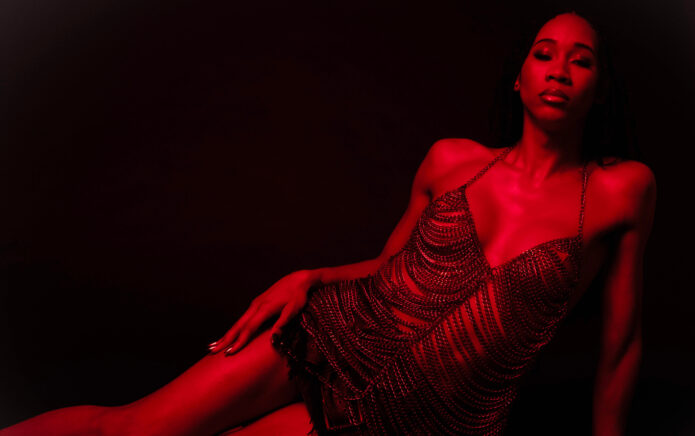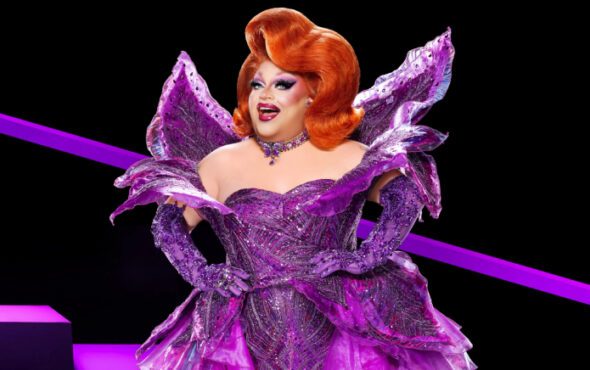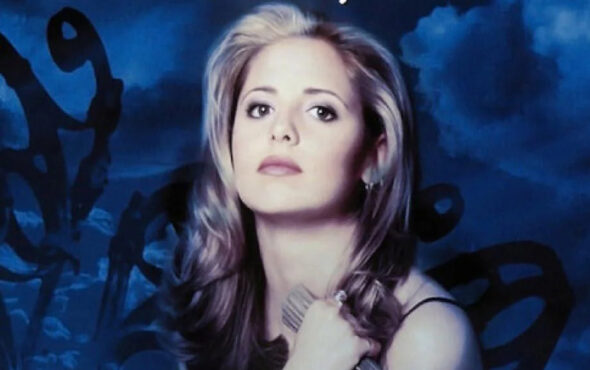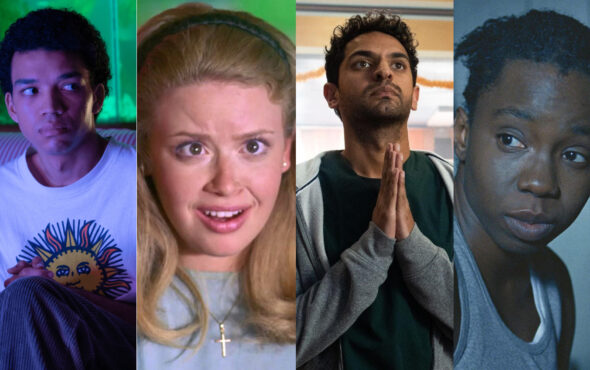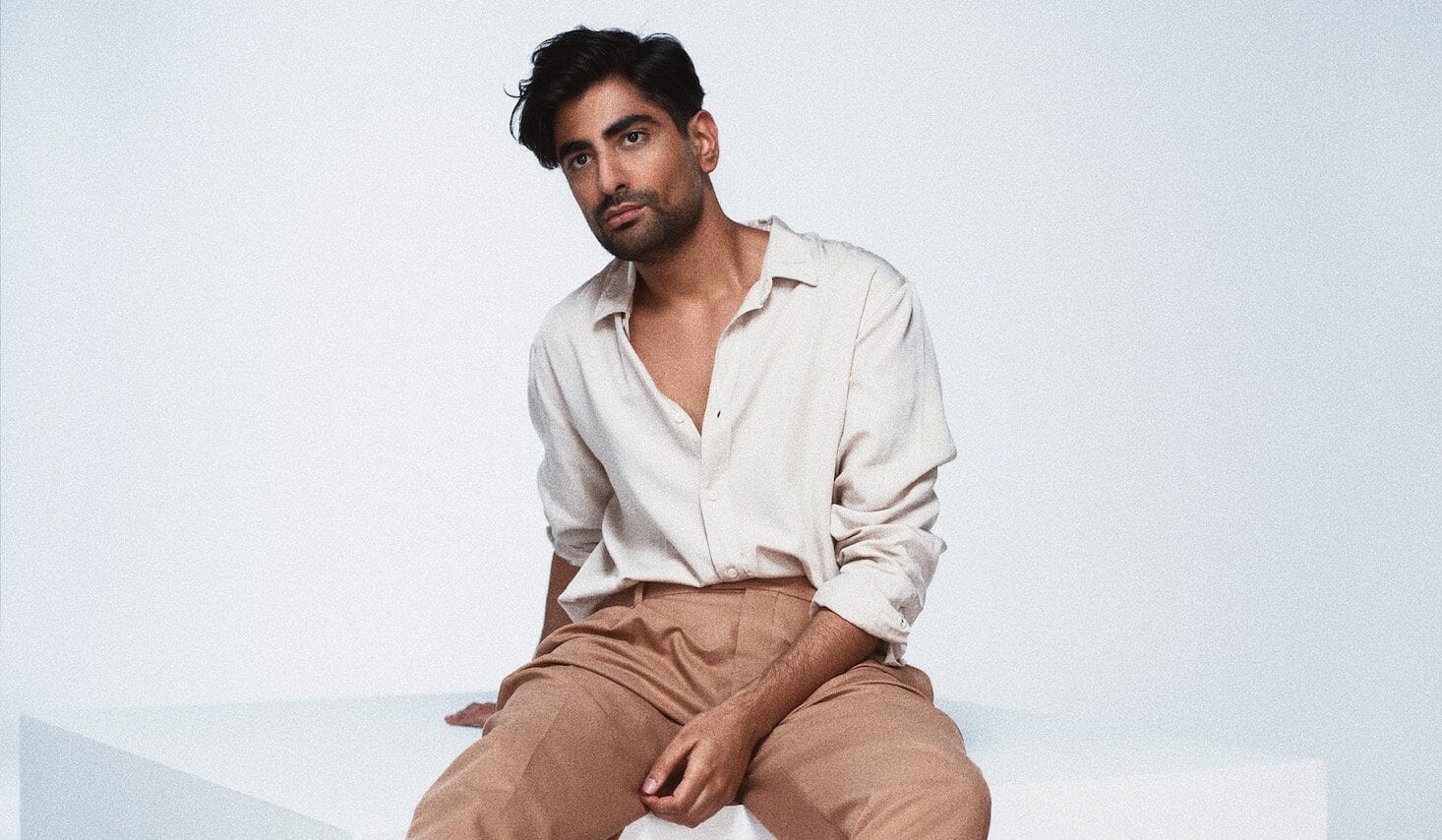
“I feel like my voice and what I’m saying is unique in its own way, and I just want to trust that and make whatever feels good in the moment without trying too hard,” says Vardaan Arora. We’re speaking with the US-based singer-songwriter just a few days before the release of his debut EP, Heartbreak on the Dance Floor (stylised in all caps), and he’s… nervous, to say the least. It’s been four years since the release of his viral debut single, Feel Good Song, which was followed by a string of pop earworms including Dance Like You, Famous and Drama. While other emerging artists have chosen the fast-track route, to release full-length collections after just a few songs, it was important for Vardaan to wait.
“I never knew what I wanted to say with the product,” he explains. “I didn’t want to put out an EP just for the sake of putting out an EP. I feel like you need some sort of message. Instead of trying to come up with something I just said, ‘I’m gonna wait until it comes to me.’ It sort of came about in a natural and organic way and I didn’t really have to… I overthink everything, so I was lucky that I didn’t have to overthink this.” With influences from 90s house to dance-pop and synthpop, Heartbreak on the Dance Floor is a non-stop party from start to end, while also managing to be a highly personal – and relatable – body of work, tackling topics including mental health, anxiety and self-love.
Two years after our first interview with Vardaan, we rendezvoused with the star over Zoom to discuss his infectious, yet introspective debut collection and how he’s no longer letting his fear “dictate” his artistic process.
So, have you ever been heartbroken on the dance floor?
Yes! I called it Heartbreak on the Dance Floor because I wrote it freshly coming out of a relationship. It’s definitely about heartbreak in the traditional sense, but I think it could apply to the feeling of heartbreak, even if it doesn’t have to do with a relationship. It could just be that you’re having a shit day, or you’re feeling low, depressed or anxious, so I wanted it to be more of a general sort of feeling. It’s happened to all of us, where you’ve been out and everyone thinks you’re having fun on the outside but you’re actually feeling quite shit on the inside. I think that’s the kind of feeling I wanted to capture with that song, and the whole record in a lot of ways.
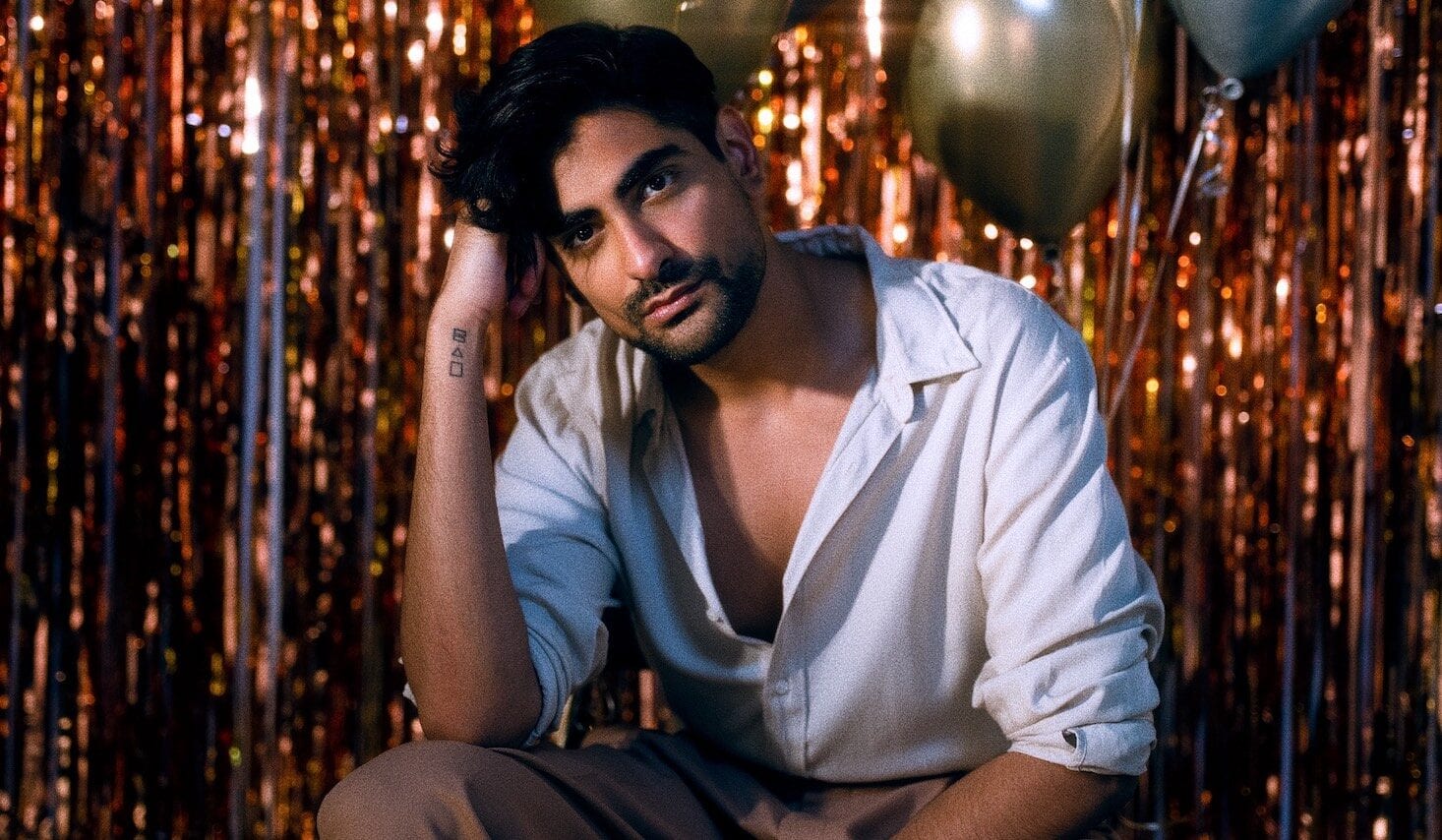
Whenever I think of heartbreak on a dance floor, my mind immediately goes to Robyn’s Dancing On My Own. Is it a queer thing?
It’s funny you say that because the whole 80s-inspired, synth-like, Robyn-esque sound was definitely a starting point for us when we were working on it. We really wanted to radiate that kind of energy. As we started writing, I decided that I wanted different sounds on it, but to lyrically be consistent – to have a narrative. I wanted the EP to feel like a mini-album as opposed to a bunch of random songs that have nothing to do with each other. Then there’s some songs about anxiety in there, which I feel like is my go-to emotion to write about! Lots of different sounds. It was one of those things where it was like, ‘Let’s see what happens,’ and then hopefully it will all make sense at the end. It did, to me at least.
Your work frequently touches on topics such as anxiety with Imposter Syndrome and Thirty Under Thirty, as well as social status in Famous – did you always intend to tackle issues like these through your lyrics?
I like to take nuanced emotions or even thoughts, that you don’t necessarily call out or talk about… Thirty Under Thirty is a song that I always think of when it comes to thoughts you have but don’t express. I thought pop music was an interesting medium for this. I’m an anxious person and a lot of artists write from their own experiences, and anxiety is a big part of my life, separate from my OCD, and it dictates so much of who I am. Everything I write about will be influenced and impacted by my experiences. Whether I want to or not, it just ends up being what I write about. There’s also this layer of hoping that people who are listening to it are going to be able to find it relatable. Dancing to those songs makes you feel good and sort of takes the power away from the anxiety that scares you so much. It’s like taking the fear out of it and turning it into a feel good pop moment instead.
It’s been four years since your debut single Feel Good Song – why was now the right time to release your first full-length project?
I never knew what I wanted to say with the product. I didn’t want to put out an EP just for the sake of putting out an EP. I feel like you need some sort of message. Instead of trying to come up with something I just said, ‘I’m gonna wait until it comes to me.’ I was going through a lot of transitional phases in my life, whether it was going through a breakup or moving departments, I felt like I was reaching new milestones and I felt different, just as a person. Right now in this transitional phase, it was a good time or me to work on a longer project. I also started working with newer collaborators who I had gotten friendlier with and I’m a stage where I can work with people to write and come up with a solid pop-record that I can be proud of, that doesn’t feel rushed, that doesn’t feel forced. I had the title Heartbreak on the Dance Floor before I even had any of the songs written. Weirdly, I realised in my writing process is that I, more often than not, will have the titles of the songs before I have the lyrics of melodies or anything like that. I’ve been lucky to have this project driving me through the nothingness of quarantine and the lockdown. It sort of came about in a natural and organic way and I didn’t really have to… I overthink everything, so I was lucky that I didn’t have to overthink this.
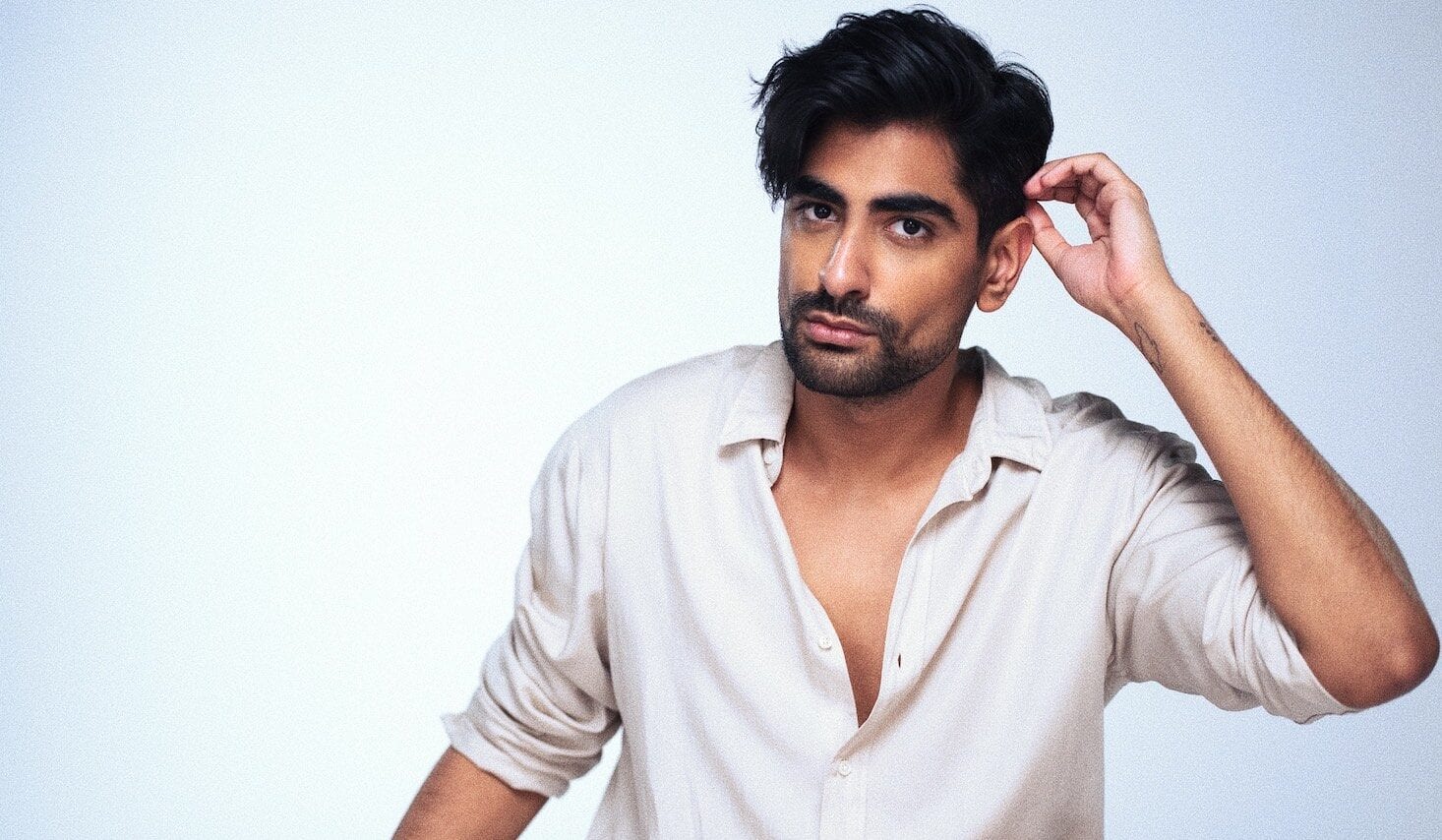
You’ve played with a lot of different sounds throughout your career – is Heartbreak on the Dance Floor an accurate reflection of where you’re at now?
Yes, definitely. I try to be as authentic as possible and I was probably authentic to who I was back then. With the newer stuff, I feel like it’s me at my most confident, artistically. It didn’t come from a place of uncertainty, it definitely came from a place of, ‘I have something to say. I’m here. I’m unique.’ I took more risks – even with the K-pop collaboration with MRSHLL. I wouldn’t have been able to pull that off a few years ago. It’s definitely me at my most confident and I just feel like I’ve worked with a really talented group of people that I’m lucky to call friends, people I trust; which is something that you want to see artists go through, whether it’s you or artists you admire and want to see grow. Otherwise, it just gets repetitive.
You can definitely feel that confident with Expensive On Me, which is an absolute banger. Please tell me about the process behind this song…
That’s an example of a song where I had the title before the lyrics. I knew I wanted it to be a confident, runway chic, house-inspired banger, and to have themes of self-love. It doesn’t matter if I go to the thrift store and buy a shirt for $2. If I put it on, it’s going to look expensive on me, the way that I carry things or the way that I look in certain things will make them look expensive. I had that idea, took it to the studio and the producer laid down the beat. It just felt super… easy? It felt like this fun fantasy where I didn’t have to think too much because the lyrics aren’t super heavy. It just felt easy and light. I decided I wanted it to be the last song on the EP because I wanted it to end on a high note. I can wake up feeling shit, like I’m going to have the worst day in the world and then cut to 6pm later that day and I feel like I’m on top of the world. No one can come for me, no one can defeat me… I am a genius. It’s almost this high that I go on, and I wanted to capture that with the song. It’s adjacent to mania, almost, when you go from feeling super depressed to super anxious to super confident. I go on these rollercoasters of emotion so often, that I thought it would be cool to put that into the EP.
How would you say you’ve grown as an artist since your debut single?
It’s interesting because I mentioned this before, that I’m lucky that I get to make the kind of music that I also want to listen to. So, I think the music that I’m making has heavily been influenced by what I’m listening to at the moment. I look back at my older stuff and there’s definitely songs where I’m like, ‘I don’t like this anymore.’ I think every artist has that, and if they say they love all their music equally, they’re lying. For example, my debut single – which I’m still a huge fan of – came out in 2016 and it’s very tropical-inspired pop music, and that was the summer of Kygo and Jonas Blue, Martin Garrix and that whole dance-pop sound. I feel like my sound is directly influenced by whatever I’m listening to. I try not to think about it too hard because I know there’s some people who want to be ahead of the curve, but I want to do something completely different. I feel like my voice and what I’m saying is unique in its own way, and I just want to trust that and make whatever feels good in the moment without trying too hard; just existing and letting things happen naturally has felt more successful to me. It’s fulfilling. I try not to think about how a song will age or how it ages. I’m not letting fear dictate any of my decisions which, four years ago, there was a lot of uncertainty in my artistic process. I can hear that in some of my older songs. Now when I go into the studio, I know what I want out of it. Before, my imposter syndrome was a lot worse. Hopefully, people can hear that in the new music.
Heartbreak on the Dance Floor is now available on streaming services – listen here on Apple Music or below.
